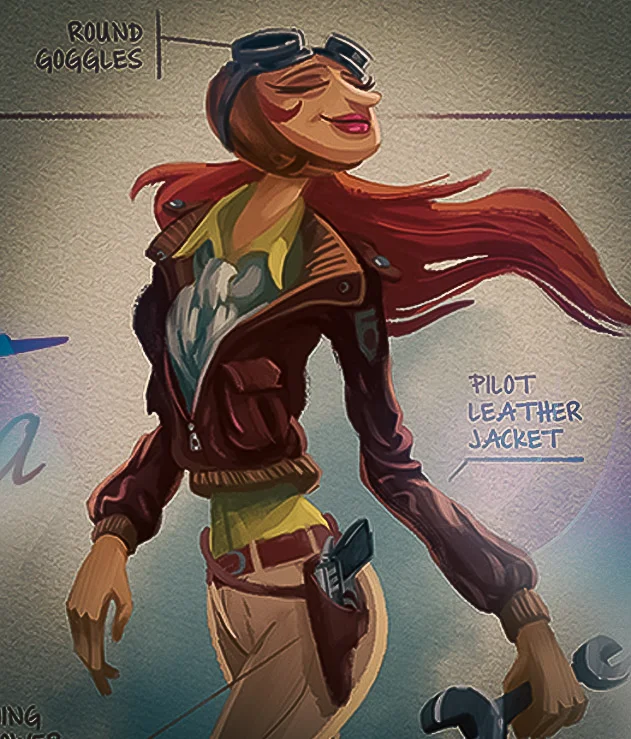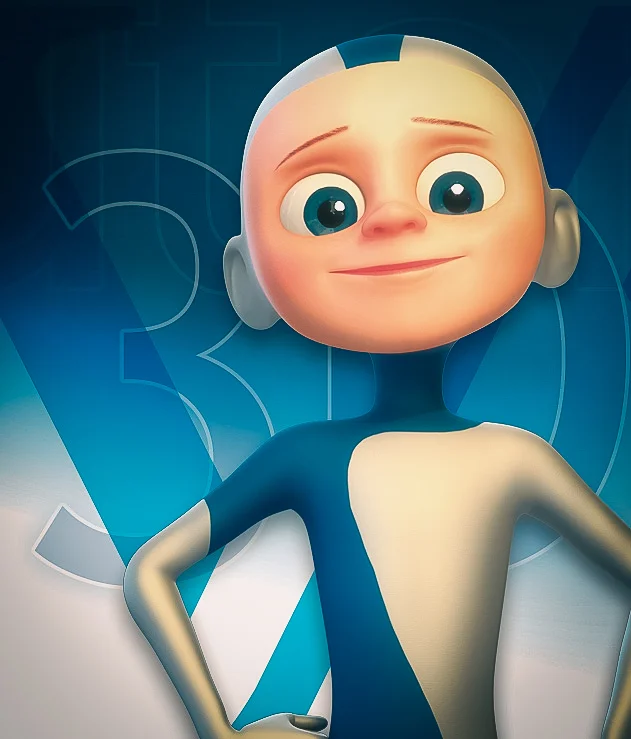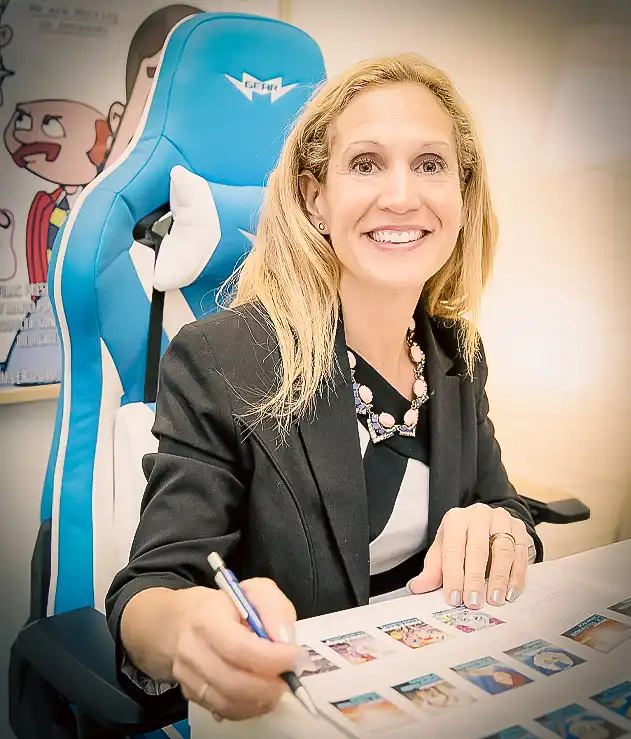 Image: Alex Dndz (Motion Array)
Image: Alex Dndz (Motion Array)
Author: VANAS Team
10 Ways to Keep Your Animation Resume Honest and Impressive
Creating a resume as a digital artist in the Animation industry can be tough. You want to stand out, show off your best work, and land that dream job. But sometimes, artists get a little too creative—not just with their portfolios, but with the truth.
If you're aiming to work in Animation, honesty and clarity on your resume matter more than you think. Studios and recruiters talk. It's a tight-knit industry, and once your reputation is at risk, it’s hard to rebuild trust.
Table of Contents
- Don’t List a Studio You Didn’t Actually Work For
- Be Clear About What You Did on Each Shot
- Only Claim Projects You Contributed Meaningfully To
- List Your Education—Not Your Instructor’s Credentials
- Be Honest About Diplomas and Accreditation
- Keep Your Job Titles Realistic
- Use Your Real Contact Info
- List Awards You Actually Won
- Avoid Buzzwords You Can’t Back Up
- Tell the Truth—Because the Industry Talks
1. Don’t List a Studio You Didn’t Actually Work For
It might be tempting to say you worked for a top-tier studio like Disney or DreamWorks, especially if your smaller studio was subcontracted by them. But stretching the truth here can damage your reputation.
Instead, list the actual studio you worked for and explain that it was part of a bigger project with a high-level client. Animation recruiters know how these partnerships work, and being clear builds trust.
If we even suspect something’s off, we call someone we know at that studio. And we always find out
Remember: recruiters are connected and will talk to each other—it’s a small industry, and your resume will follow you.
2. Be Clear About What You Did on Each Shot
One of the most common resume errors is making it seem like you single-handedly created a beautiful shot in a film or show. But in reality, Animation is a huge team effort.
Instead of saying you “created the final scene,” describe your specific contribution: Did you animate a background character? Build the FX elements? Light the environment?
Being specific shows maturity and understanding of the collaborative nature of the industry. And it makes your skills easier to verify.
Honesty doesn’t make your role look smaller. It makes your resume stronger.
3. Only Claim Projects You Contributed Meaningfully To
Some artists add movie or game titles to their resume even if they only worked on the project for an hour. They’ll even rush to add themselves to IMDb to look more experienced.
Don’t do this. Recruiters can check dates, timesheets, and even call production coordinators. Claiming credit where it’s not due hurts your reputation and raises red flags.
If you worked on a project for a short time, that’s okay—just be clear about your role and how long you were involved.
4. List Your Education—Not Your Instructor’s Credentials
It’s impressive to learn under a well-known industry pro, but listing their credentials as part of your own isn’t right.
Don’t say things like “Graduated under Pixar animator John Doe.” You’re not borrowing their resume. Stick to listing your school, program, and graduation date.
Recruiters want to know what you accomplished, not what your instructor has done.
5. Be Honest About Diplomas and Accreditation
When applying for international jobs, immigration offices and studios often require proof of a degree or diploma from an accredited institution.
Faking or misrepresenting your education might get you an interview, but it can ruin a visa process and damage your credibility forever.
If you’re still studying or took non-accredited courses, just be upfront. Many recruiters appreciate continued learning and self-motivation, especially in Animation.
6. Keep Your Job Titles Realistic
Were you a “Lead Animator” on a two-person student film? That’s great experience—but don’t exaggerate the title.
Recruiters know what titles mean in different studio sizes. Inflating your role might backfire, especially when your demo reel doesn’t reflect the skill level expected from someone with that title.
Use the correct titles and focus on the value you brought to the project. Clarity beats flair every time.
7. Use Your Real Contact Info
It might sound shocking, but some artists list fake countries, cities, or phone numbers to seem more global or attractive to international studios.
But studios run background checks. And if they can’t reach you, they’ll move on—fast.
Be real about your location and reachable contacts. Many studios offer remote work now, so being transparent won’t hurt your chances.
8. List Awards You Actually Won
Winning an award feels great—but don’t list festivals you never entered or prizes you didn’t earn.
Some artists claim awards from fake contests or confuse “participation” with “winner.” Recruiters do their research, and if they find out you’ve lied, it’s an automatic disqualifier.
If you were nominated, say that. If you were selected to screen but didn’t win, that’s still worth including—but be accurate.
9. Avoid Buzzwords You Can’t Back Up
Your resume might say you're a “dynamic, visionary storyteller” with “world-class compositing skills”—but can your reel prove it?
In the Animation world, flashy phrases don’t matter as much as your actual work. It’s better to use simple, direct language about your skills and tools, like:
- Proficient in Blender and After Effects
- Experienced in hand-drawn frame-by-frame animation
- Created 3D assets for mobile games using Maya
Keep it real. Let your work speak louder than your adjectives.
10. Tell the Truth—Because the Industry Talks
Ultimately, your resume is not just a list of achievements—it’s your first conversation with a studio. If it starts with a lie, you may never get a second chance.
The Animation industry is incredibly connected. Recruiters often move between studios, talk to each other, and remember names. Your reputation is your brand—protect it.
You can get far with talent. But you’ll go farther, faster with honesty.
Frequently Asked Questions
Why does honesty matter so much in the Animation industry?
- Because the industry is small and highly connected. Recruiters and producers talk, and dishonesty can quickly damage your professional reputation.
What should I do if I made a small contribution to a big project?
- Be honest about your role. Say exactly what you did, even if it was just a few frames or a short-term task. Specifics show you understand your craft.
Can I still get hired if I don’t have a fancy studio on my resume?
- Absolutely. Studios care about your demo reel, attitude, and willingness to learn more than big-name experience. Everyone starts somewhere.
Is it okay to mention famous teachers or guest lecturers?
- Yes, but only in a cover letter or interview—not in your education section. The resume should focus on your training, not your teacher’s achievements.
What’s more important—portfolio or resume?
- Both matter, but in Animation, your portfolio/demo reel often carries more weight. Still, your resume supports your reel and tells your story.







